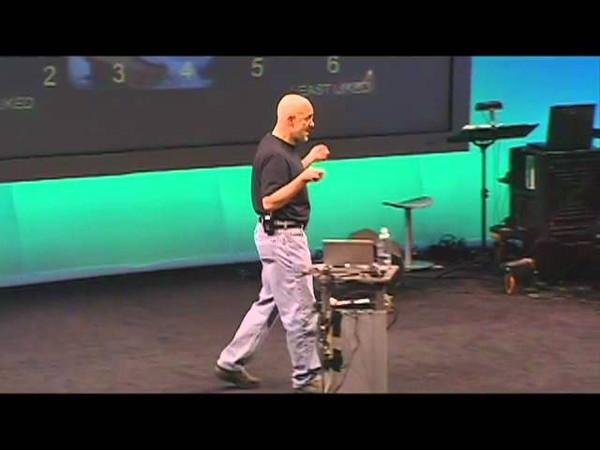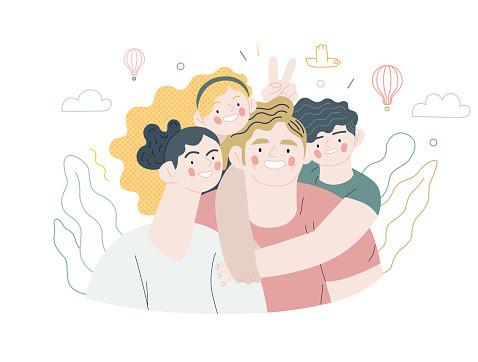The surprising science of happiness | Dan Gilbert
Curated from: TED
Ideas, facts & insights covering these topics:
7 ideas
·2.87K reads
14
Explore the World's Best Ideas
Join today and uncover 100+ curated journeys from 50+ topics. Unlock access to our mobile app with extensive features.
Impact Bias
Impact bias is the tendency to overestimate the hedonic impact of future events.
For example, consider two groups of people where one group won the lottery, and the other group became paraplegics. Data shows people of both groups are equally happy a year after the event.
A recent study suggests that major life traumas that happened over three months ago had no impact on happiness.
27
514 reads
Psychological immune system
In 1642, Sir Thomas Brown wrote that he is the happiest man alive. "I have that in me that can convert poverty to riches, adversity to prosperity, and I am more invulnerable than Achilles. Fortune hath not one place to hit me. "
All humans have the same remarkable notion. We can think of it as a psychological immune system that helps us change our views of the world so we can feel better about the world in which we find ourselves.
32
441 reads
Synthesising happiness
- Natural happiness is what we get when we obtain what we want.
- Synthetic happiness is what we make when we don't get what we want.
In our society, we strongly believe that synthetic happiness is of an inferior kind. However, synthetic happiness is as real and enduring as natural happiness.
Studies show that when we get what we didn't want, our liking for the owned object increases and our liking for the unowned object decreases. That's the synthesis of happiness.
32
433 reads
The ability to synthesize happiness
All human beings have this capacity to synthesize happiness, but some can do it more effectively.
- Freedom - the ability to make up your mind and change your mind - is a friend of natural happiness because it allows you to choose the one you would most enjoy.
- However, the freedom to choose and make up your mind is the enemy of synthetic happiness.
The psychological immune system works best when we are totally stuck because then we will find a way to be happy with what we have. When we still have options available, we will always wonder if we have made the best choice.
26
385 reads
The importance of understanding synthetic happiness
In a Harvard study, students could join one of two photography courses where they can also develop two of their best photos, one for them and the other for headquarters.
- They could join the course where they had four days to decide which photo they wanted to keep.
- They could join the course where they had to make up their mind right away.
Sixty-six percent of students preferred the course where they could change their minds, meaning they chose to be deeply dissatisfied because they didn't understand the conditions under which synthetic happiness grows.
23
369 reads
William Shakespeare said, "Tis nothing good or bad but thinking makes it so.
Adam Smith, the father of modern capitalism, said, "The great source of both the misery and disorders of human life seems to arise from overrating the difference between one permanent situation and another... The person under the influence of any of those extravagant passions is not only miserable in his actual situation, but is often disposed to disturb the peace of society in order to arrive at that which he so foolishly admires."
26
365 reads
Bounded and unbounded ambition
Our desires are often overblown. Of course, some things are better than others, but when our preferences drive us too hard and too fast because we overrate the difference between the two, we risk sacrificing things of real value.
When our ambition is bounded, we're prudent and thoughtful. When our ambition is unbounded, it can lead us to lie, steal, cheat, and hurt others.
29
365 reads
IDEAS CURATED BY
The first step in the acquisition of wisdom is silence, the second listening, the third memory, the fourth practice, the fifth teaching others.
Nicholas J.'s ideas are part of this journey:
Learn more about videos with this collection
How to find inspiration in everyday life
How to stay motivated
How to cultivate a positive mindset
Related collections
Similar ideas
Read & Learn
20x Faster
without
deepstash
with
deepstash
with
deepstash
Personalized microlearning
—
100+ Learning Journeys
—
Access to 200,000+ ideas
—
Access to the mobile app
—
Unlimited idea saving
—
—
Unlimited history
—
—
Unlimited listening to ideas
—
—
Downloading & offline access
—
—
Supercharge your mind with one idea per day
Enter your email and spend 1 minute every day to learn something new.
I agree to receive email updates




